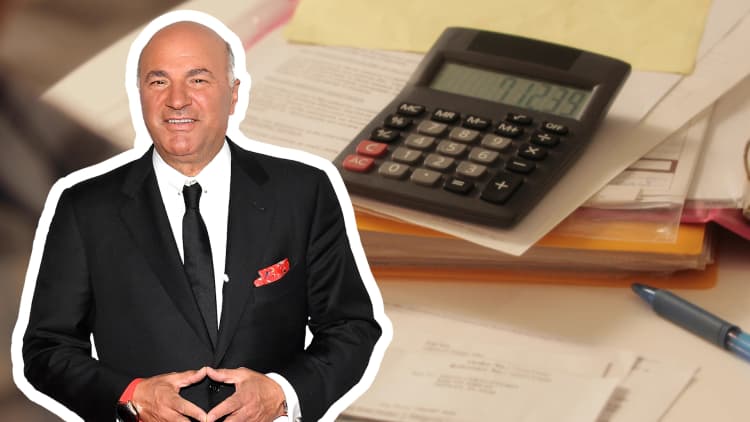"You have 10 years to pay it off," "Shark Tank" star and financial guru Kevin O'Leary tells CNBC Make It about student debt.
"Let's say you're graduating and you're [22] — you have to pay that off by the time you're 32."
The whole reason to invest in an education is "to actually have earnings power when you get out," O'Leary reasons. If you have student debt for any longer, "it's a ball and chain on your life," he says.
That's because the longer you carry student loan debt, the more interest you end up paying. And that's money you could have invested in instead, says O'Leary.
In fact, if you can, you should try and pay off your student loans within three years, O'Leary previously told CNBC Make It.
U.S. student loan debt levels set a new record in 2018, with borrowers collectively owing $1.5 trillion, as Americans owe between $20,000 and $25,000 each on average. And while the standard repayment plan for federal loans expects the debt to be paid in less than 10 years, for many it takes a lot longer. As CNBC Make It previously reported, research from the Citizens Financial Group suggests that 60 percent of student debt borrowers expect to pay off their loans in their 40s, and data collected at the state level underscores those findings. An analysis of 2017 student loan data found that there are Baby Boomers who are still paying off their student loans.
Don't let that be you, says O'Leary. It could mean cutting back your lifestyle "significantly" to spend a percentage of your paycheck on your debt, O'Leary previously told CNBC Make It. But whatever it takes, you should do it "while you're young and frisky," "before your lifestyle starts to really creep in on you and make you spend more on things like vacations, and dating, and dinners, and when a child comes along, all of those expenses," he said.
It also means you should think very carefully before taking on student debt. College tuition has increased, while median family income has remained flat, CNBC previously reported, and some experts have noted that as more people go to college, the value of a bachelor's degree has faded.
So O'Leary recommends asking yourself, "What am I taking in university that's going to give me a salary that lets me pay this off?" (Engineering, O'Leary says, is a good option that will allow you to find a job quickly and pay off that debt fast. And engineering dominates rankings for the highest-paying college majors.)
"College is an investment in your future but it also brings on debt," O'Leary says. "In other words, you better think long and hard about the debt you're going to incur in going to college."
O'Leary adds that his 10-year time limit applies for secondary degrees too.
"I don't care if you get a Masters or a PhD; you can't have student debt for more than 10 years," O'Leary says. "You've got to pay it off. So if you're really investing in education in post-secondary...you better get a job that you make some money on. Make sure it's worth it."
Like this story? Subscribe to CNBC Make It on YouTube!
Don't miss: 'Shark Tank's' Kevin O'Leary: This is how to negotiate, from your salary to your cable bill
Disclosure: CNBC owns the exclusive off-network cable rights to ABC's "Shark Tank."




